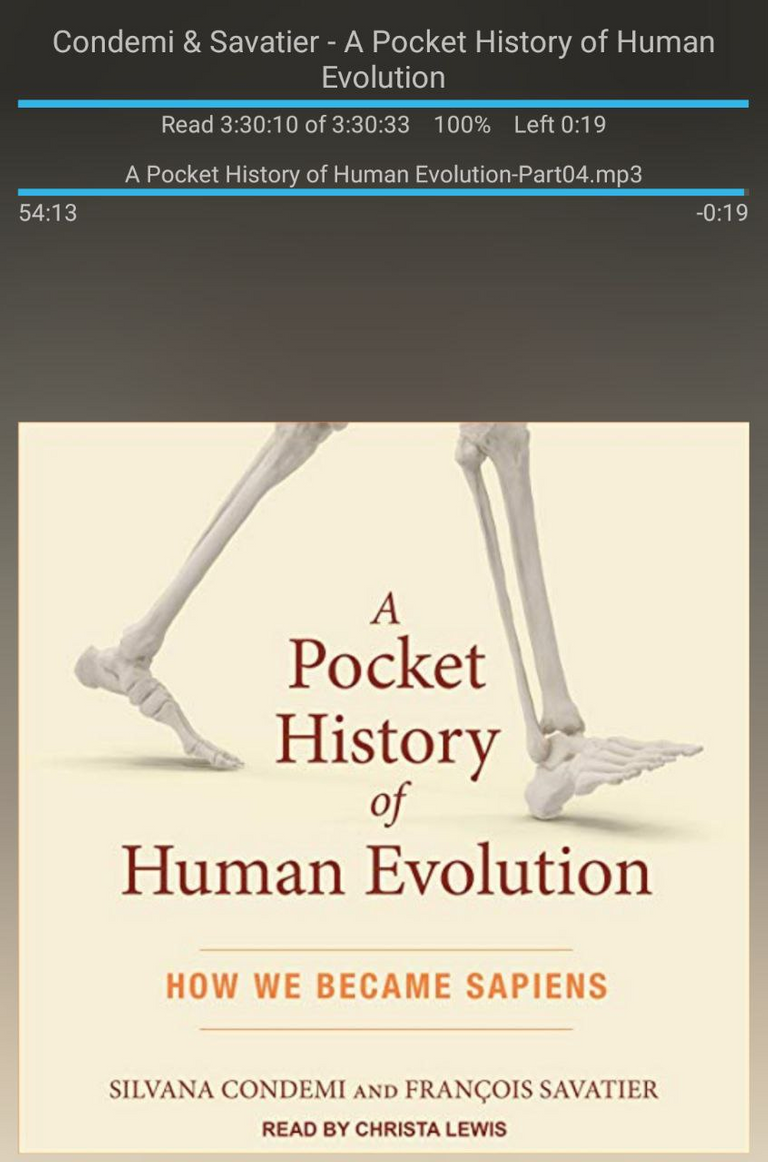A Pocket History of Human Evolution
Silvana Condemi, François Savatier

Living in a conservative country that favors creationism and puts frequent restrictions on teaching evolution in the compulsory education system has not been easy for me. Books published within the country on evolution are also shunned from the largest online retail store. This is how this book came to my attention--a translated version of it was published at the last national book fair but the retail platform refused to let it on their site.
I merely picked it up out of curiosity, part of it due to me being a sentimentalist to the cause; and mostly to see if there is any new development in this sector. While this may very well be a concise and concrete introduction to Human Evolution, that will only apply to people who are new to the literature on evolutionary biology and human history. If you've already read a few books on the subject, there is almost nothing new for you. Still, it's a good read as it is a newer publication with updated information.
The authors postulated that human evolution is not only a natural or biological one, it has cultural, social, and linguistic dimensions as well. The growth of power structures in such primitive societies, how each factor influenced and furthered human evolution, and so on.
The authors also put forward a different philosophy anent why neanderthals went extinct, they disagree with the prevailing theory that sapiens violently and directly confronted them to extinction, rather they argue in favor of habitat destruction, and slow decimation of the species. While they have their logic behind their claim, I personally lean towards the prevailing theory of murderous intent and special hegemony.
Although they kind of passively admitted in favor of forced extinction theory when they presented the instances of tribal war, and mass killing among hunter-gatherer sapiens around 10-12 thousand years ago. While this gives us solid evidence of our (sapiens) violence towards each other, let alone other species, we don't really need to confirm that from archaeological evidence—recorded human history is enough to discern that.
The most curious bit for me is probably this — I was apparently wrong about Neanderthals first taming fire. It appears, our ancestors are using fire for 700,000 years and the earliest instance of fire incident dates to 1.4 million years (although it isn't confirmed whether it was intended or not). This urged me to reevaluate early homo species and their advanced cognitive abilities.
At any rate, I will highly recommend the book to anyone who is new to human history and wants to get a brief idea of it. I listened the audiobook version of it.

You can read more of my film and literature related articles on my hive blog page.



